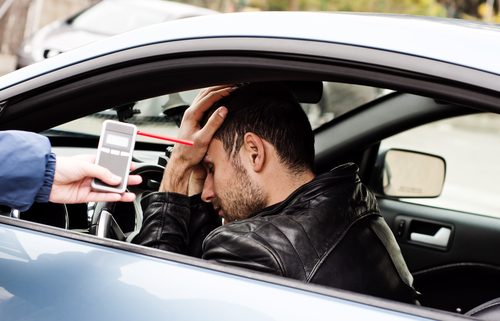
ALR stands for Administrative License Revocation. When a state revokes your driver’s license in this manner, you need to pay an ALR reinstatement fee before you can be issued a license again or move forward with the renewal of your license. Once you pay this fee, along with other outstanding fees stemming from your case, you can get your license reinstated.
Administrative license revocation can occur in a few different circumstances. There are also other factors that you should know about, as they could complicate efforts to get your license back.
When Administrative License Revocation Occurs
If you are facing an ALR reinstatement fee, it is likely because you were arrested for driving while impaired (DWI). DWIs are taken quite seriously across the United States. As a result of a DWI charge, you can easily lose your license for a significant period of time.
In most states, your license can be suspended or disqualified if you:
- Refuse or fail to complete a blood or breath test when pulled over
- Register a blood alcohol concentration of 0.08% or more when driving a non-commercial vehicle
- Register a blood alcohol concentration of 0.04% or more when driving a commercial vehicle
Any of these situations can lead to a suspension of your driving privilege and the eventual need to pay a fee to get that privilege reinstated.
How the ALR Process Works
If you have had your license suspended in this manner, it is important to know how the Administrative License Relocation process works and how you can begin getting your license back. The ALR process generally has a few steps, including:
A Field Sobriety Test
Suppose a law enforcement officer that has pulled you over has reason to believe that you are driving while impaired. They give you a field sobriety test—such as a breath or blood test—designed to measure your blood alcohol concentration. If you refuse the test or fail it, you may receive a suspension notice and a temporary license.
A Hearing
At this point, it is your responsibility to schedule a hearing. You should do so soon after receiving your notice of suspension. If you do not schedule a hearing, your suspension will go into effect a set number of days after your receipt of the notice.
If you request a hearing and receive approval, one may be scheduled within a few weeks of your traffic stop. At this point, a judge will listen to both parties and evaluate the evidence. If they determine that law enforcement has proven its case, you will receive a license suspension.
Appeals
In some cases, you may appeal your license suspension. You will need to present evidence that supports your claim for overturning the court’s decision. An attorney may be able to help you collect such evidence and fight for your appeal on your behalf.
Length of License Suspension
If you are not eligible for a hearing or the judge sides with law enforcement at your hearing, your license will be suspended. How long your license suspension lasts can depend on several factors, including:
- Your age: Whether or not you are 21 or older may affect the length of your license suspension. Failing a sobriety test can have different results for minors and drivers over 21 years old.
- Previous offenses: Your previous offenses can also affect how long your suspension lasts. For each additional offense, you are likely to face a longer license suspension.
How a Lawyer Can Help
In accordance with state law, the ALR hearing is a civil matter separate from the criminal charge. Some may think to hire a lawyer to fight their DWI charge, but a lawyer can also help you with the separate ALR hearing.
An attorney can help you prove your case, potentially avoiding the license suspension and the need to pay an ALR reinstatement fee. They may also help with the appeals process if needed. While a lawyer is not required, one can act as your advocate and fight for the best possible outcome.
Call (214) 696-9253 to learn more about how you can fight back against your DWI charge. The team at the Law Offices of Randall B. Isenberg is ready to take your call.










